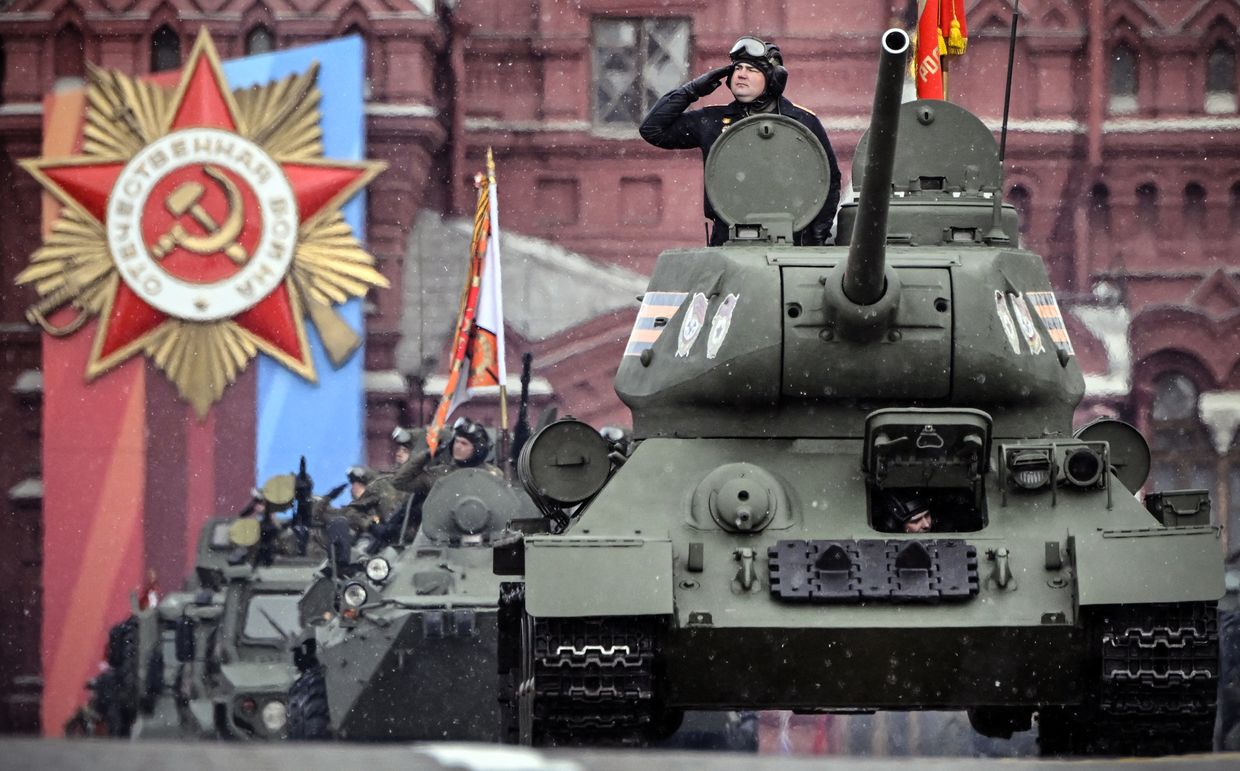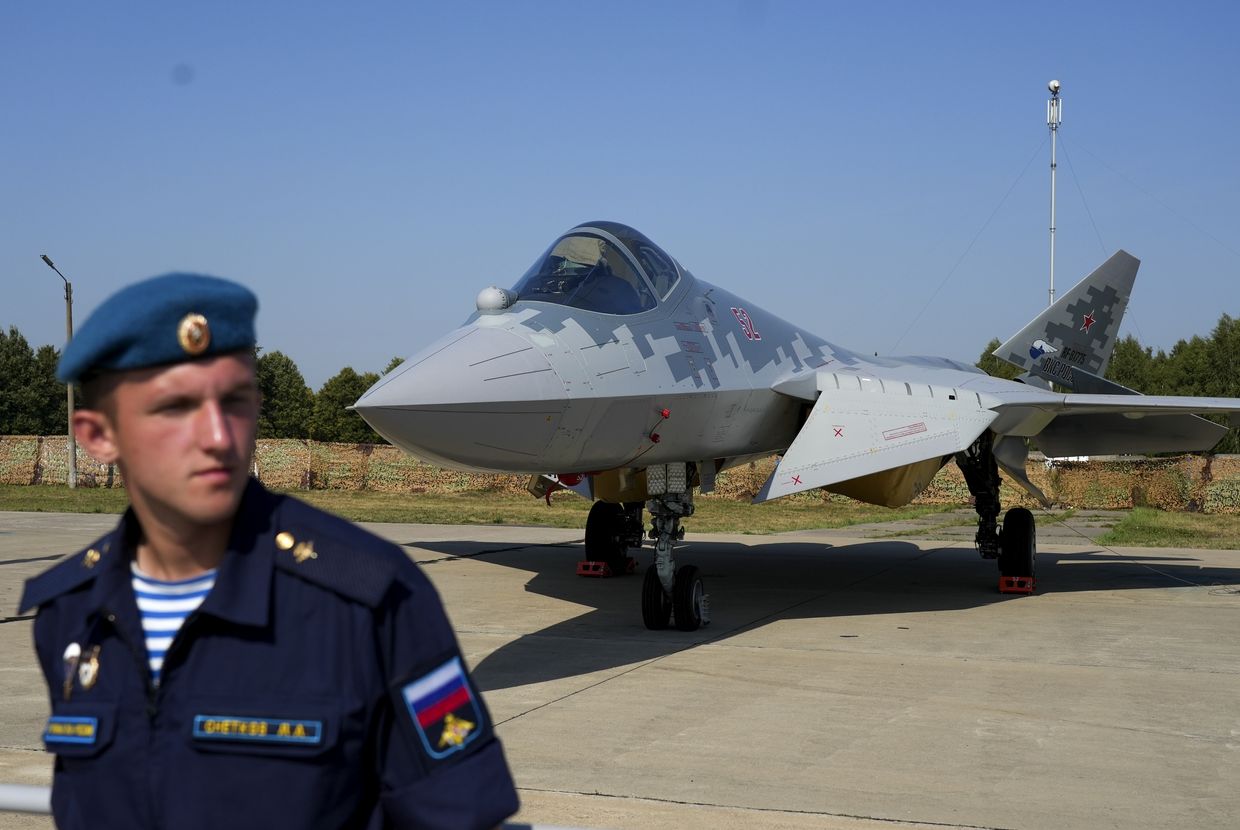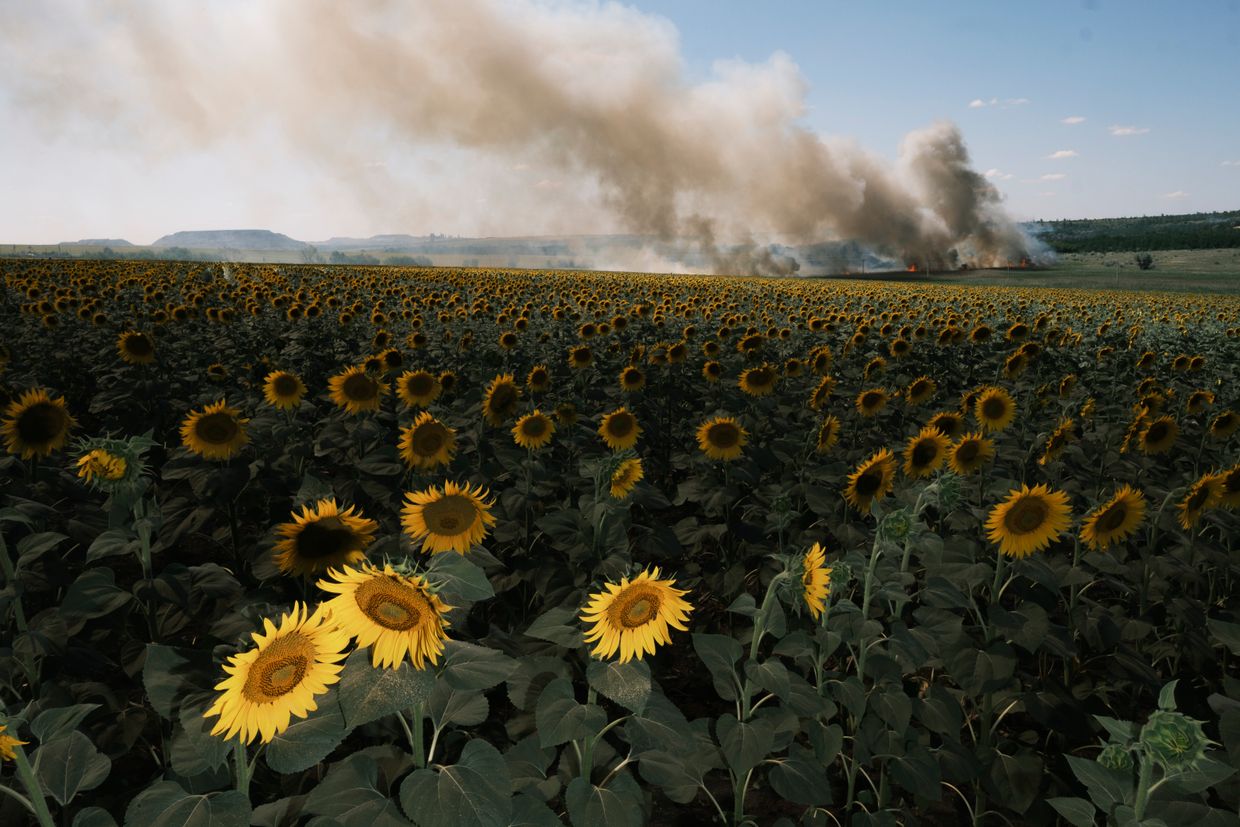Ukraine war latest: Kyiv strikes Russian oil depot; 2 Russian bombers hit in earlier attack

Key developments on July 30:
- Ukraine hit oil depot in Russia's Kursk Oblast, General Staff reports
- 2 bombers damaged in last week's attack on airfield in Russia's Murmansk Oblast, HUR says
- US will provide its own weapons for F-16s to be delivered to Ukraine, WSJ reports
- Ukraine needs additional $12-15 billion from partners in 2025 'because the war will continue,' finance minister says
- Czechia shows interest in Poland's Ukrainian Legion project
Ukrainian forces struck the oil depot Logistics Center №43 in the village of Vozy in Russia's Kursk Oblast overnight on July 30, the General Staff reported.
Earlier in the day, Governor Alexei Smirnov claimed that four Ukrainian missiles were intercepted by air defense over the region's Kurchatovsky and Oktyabrsky districts.
The attack, carried out by the Security Service of Ukraine (SBU) in cooperation with the Armed Forces, caused a fire at an oil depot, according to the Ukrainian military.
More information on the consequences of the oil depot's damage is still being clarified.
On July 29, Ukraine's General Staff said that its forces had struck at least four power substations in Kursk Oblast.
Smirnov also claimed that Ukrainian drones struck an oil depot in the oblast overnight on July 28-29, causing at least three fuel tanks to catch fire. The governor did not specify which facility was hit.
On July 28, the SBU, in cooperation with the Ukrainian military, hit the Polyova oil depot in Kursk Oblast, the General Staff confirmed.
Kursk Oblast lies on the border with Ukraine's Sumy Oblast. In recent months, Ukrainian forces have been regularly attacking military facilities and infrastructure in Russian regions bordering Ukraine.
2 bombers damaged in last week's attack on airfield in Russia's Murmansk Oblast, HUR says
Two Tu-22M3 bombers were damaged in the July 25 strike targeting the Olenya airfield in Russia's Murmansk Oblast, Ukrainian military intelligence spokesman Andrii Yusov told Radio Free Europe/Radio Liberty (RFE/RL) on July 30.
Yusov reported earlier that one Russian bomber was damaged in the attack at the airfield, located about 1,800 kilometers (1,118 miles) north of the Ukrainian border.
In a recent comment to RFE/RL, the spokesperson also clarified that the strikes against the Russian airfields of Olenya in Murmansk Oblast, Engels in Saratov Oblast, and Diagilevo in Ryazan Oblast were carried out on July 25 at around 4 p.m. local time, not on July 27, as was reported earlier.
The restoration of the aircraft hit at the Olenya airfield may take several months, and during the attack, the air raid alarm did not work at the airfield, according to Yusov.
The RFE/RL's Russian service published on July 30 satellite images that "show no traces of a Ukrainian strike on the strategic airbase," according to the journalists.
Yusov said satellite images are "not the only source of information that should be relied on."
"The information has been confirmed from various sources, and we can already speak about this incident as something that definitely took place," he added.
Yusov also said that Ukraine's military intelligence "neither confirms nor denies" Ukraine's involvement in the attack.
While Ukraine does not have permission to fire Western-made long-range weapons deep inside Russian territory, the country frequently uses domestically-produced drones.
Ukraine's drone operations often target oil refineries and airfields, aiming to reduce Russia's oil process capabilities and hinder its economy, as well as target Russian aircraft that bomb Ukrainian cities.
US will provide its own weapons for F-16s to be delivered to Ukraine, WSJ reports
The U.S. will arm dozens of F-16 jet fighters being sent to Ukraine with American-made missiles and other weapons, the Wall Street Journal (WSJ) reported on July 30.
Ukraine is awaiting at least 79 F-16s from the Netherlands, Denmark, Belgium, and Norway, with up to 20 expected to arrive this year.
The Pentagon has limited stocks and production capacities, but it will supply Ukrainian F-16s with air-to-ground munitions, precision-guidance kits for bombs, and advanced air-to-air missiles in sufficient quantities to meet Ukraine's most urgent needs, a senior U.S. official told WSJ.
"We are confident that we will be able to supply all of those (weapons), at least the critical volumes that they need," the U.S. official said.
The weapons the U.S. will provide for the F-16s include AGM-88 HARM air-to-ground missiles, long-range JDAM munitions that turn unguided bombs into smart weapons, and GLSDB small-sized precision-guided munitions, according to the media outlet.
The European members of the fighter jet coalition were reluctant to send Ukraine a large number of their limited stocks of ammunition for F-16s, so they settled for supplies from the U.S., which is a member of the coalition but does not transfer its aircraft, WSJ wrote.
Kyiv has been calling for these U.S.-made fourth-generation jets since the very first year of the full-scale war in order to bolster its air force, which is made up of Soviet-made aircraft and has been significantly depleted over the past years of war.
Despite promises by U.S. Secretary of State Antony Blinken on July 10 that the first Dutch and Danish F-16s are already on their way, no delivery has been confirmed so far.
Ukraine needs additional $12-15 billion from partners in 2025 'because the war will continue,' finance minister says
Ukraine will likely need an additional $12-15 billion in foreign financial support next year as the war is unlikely to end in 2025, Finance Minister Serhii Marchenko said in an interview with RBC Ukraine published on July 30.
Foreign aid is crucial for Ukraine as the economic pressure caused by the full-scale Russian invasion mounts.
"Now we are constantly discussing with our partners that we need additional financial assurance because the war will continue in 2025, and we need to have a buffer," the minister said. According to Marchenko, the current pledges from partners will not be sufficient.
The figure of $12-15 billion corresponds to discussions between the Finance Ministry and the International Monetary Fund (IMF), he added.
"They (IMF) also potentially see this as an additional need beyond what is currently provided for in the program," he added.
The IMF has allocated $15.6 billion in financial support to Ukraine under the Extended Fund Facility (EFF) program, which is to be disbursed in regular installments until 2027.
Ukraine received the latest tranche of $2.2 billion in early July. Under the IMF's program, Kyiv also received political commitments from its partners of $122 billion by 2027.
The besieged country received $42.5 billion in external financing from various donors last year, allowing it to function amid the ongoing war. The IMF said Ukraine will need roughly the same sum to support its budget this year.
Ukraine is also searching for new revenue sources at home.
"We are showing that we are ready for the most difficult decisions and that we are making our own contribution," Marchenko told RBC Ukraine, reminding that the government is pushing forward a tax hike.

Czechia shows interest in Poland's Ukrainian Legion project
The Czech government is looking closely into the formation of the Ukrainian Legion in Poland and might consider its own involvement, Radio Prague reported on July 29.
The legion was unveiled earlier this month as a volunteer military unit made up of Ukrainian men living in Poland and trained by the Polish Armed Forces.
"The Czech Defense Ministry is gathering information from the Polish side about the creation of the so-called Ukrainian Legion," the ministry's spokesperson, David Polak, told the Idnes.cz news portal.
"Once we have (the necessary information), we will consider our involvement."
It remains unclear whether Prague's involvement would encompass creating a similar unit on Czech territory or aiding the creation of the legion in Poland.
Czechia has trained over 4,000 Ukrainian soldiers on its territory in 2023, the Czech Defense Ministry said.
Czech Defense Minister Jana Cernochova commented that the plan could help Ukrainian men who live in Czechia take part in defending their homeland.
"Lot of (Ukrainian) citizens want to help their country, but they don't want to return to Ukraine, because they don't know what to expect," Cernochova said in an interview with CT24.
There are around 570,000 Ukrainians living in Czechia, including roughly 380,000 living under temporary protection as refugees.
Close to a million Ukrainian refugees live in neighboring Poland.
The legion was announced as part of the security agreement signed by President Volodymyr Zelensky and Polish Prime Minister Donald Tusk on July 8.
Recruitment for the Ukrainian Legion will be conducted by Ukrainian consular offices. The volunteers will be conscripted under Ukraine's legislation and trained in Poland by the country's military, he added.
"Several thousand" people have registered to participate in the legion as of July 11, Polish Foreign Minister Radoslaw Sikorski said. The recruits will be allowed to return to Poland after completing their service.















